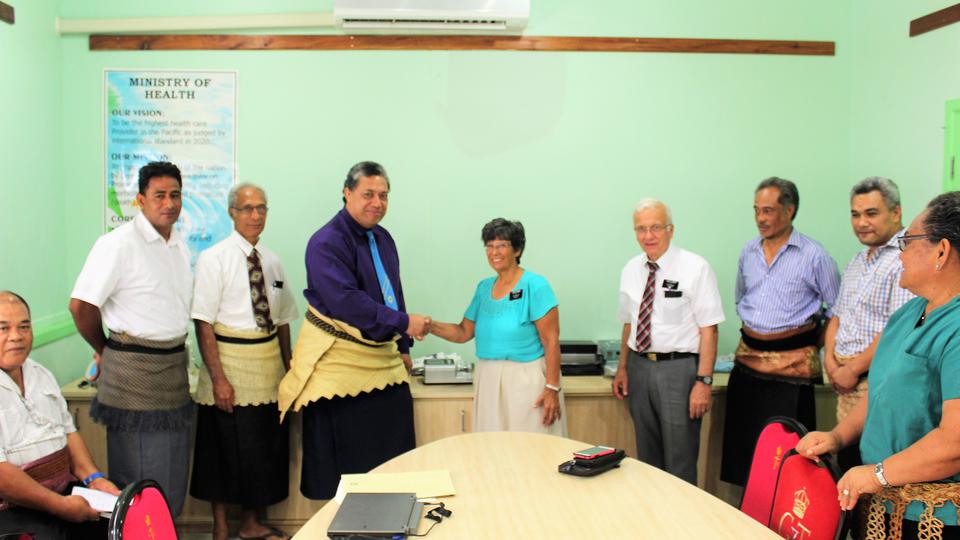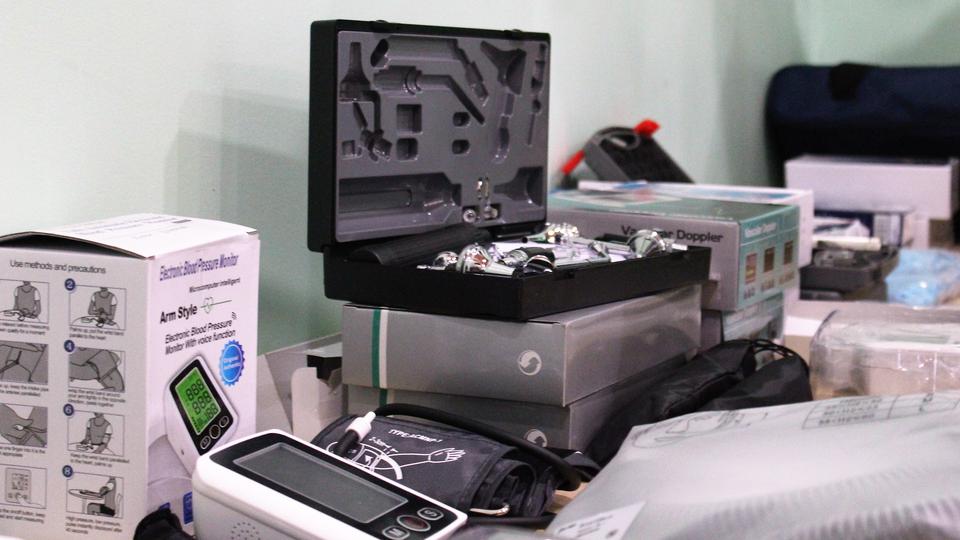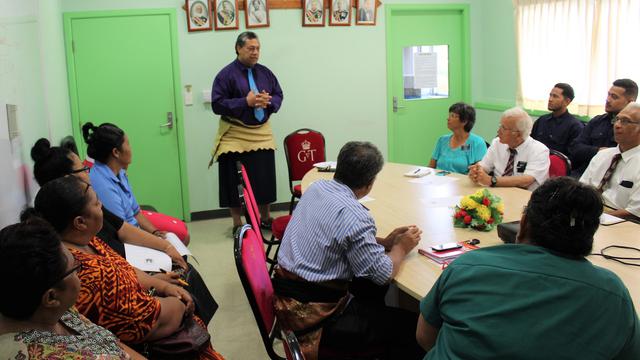Church and community leaders in Tongatapu, Tonga recently attended a handover ceremony for the “Forget Me Not” project.

This project, requested by the Biomedical Engineering Department of the Ministry of Health and funded by LDS Charities, the humanitarian arm of The Church of Jesus Christ of Latter-day Saints, provided health centres in Tonga with clinical medical equipment including updated equipment and supplies for the monitoring and managing of diabetes.

Biomedical engineer for the Ministry of Health, Semisi Finau, describes how the title for the project was chosen. As a Latter-day Saint, he remembered an excerpt from a talk given by Church leader Dieter F. Uchtdorf:
“A while ago I was walking through a beautiful garden with my wife and daughter. I noticed, among all the glorious blooms, the tiniest flower. [It] is called a ‘forget-me-not.’”
“It does not attract immediate attention; it is easy to overlook among larger and more vibrant flowers; yet it is just as beautiful.”
He suggested there is a haunting plea in its name. “There is a German legend that just as God had finished naming all the plants, one was left unnamed. A tiny voice spoke out, ‘Forget me not, O Lord!’ And God replied that this would be its name.”
“Forget Me Not” was chosen as the project title because its purpose is to forget not the people of the outer islands of the Pacific.
This project will allow people throughout Tonga to have better access to medical treatment. Currently there are 14 health centres and 34 reproductive and health clinics across Tonga. Some of these health centres are located in remote locations. The equipment will assist doctors, health officers and nurses in providing better management and treatment of diabetes and other noncommunicable diseases in these areas.

“This is a great addition to the health care of Tonga,” stated Fusi Kaho, a senior nurse who works in the clinics. “This equipment is very much needed. The equipment in the outer clinics is often very old and some equipment is not available.”
She also shared that Tongans haven’t been receiving proper medical care because of the expense and time required to travel to better-equipped medical facilities. There also exists a fear of going to the hospital rather than a clinic. The equipment in the health centres will help more patients obtain the care they need.
LDS Charities was founded to relieve suffering, foster self-reliance and provide opportunities for service. Volunteers sponsor relief and development projects in 189 countries and give assistance without regard to race, religious affiliation or nationality. Aid is based on the core principles of personal responsibility, community support, self-reliance and sustainability.